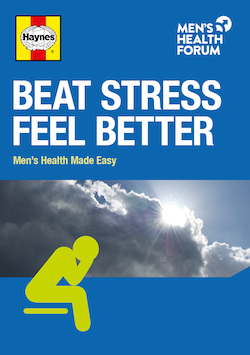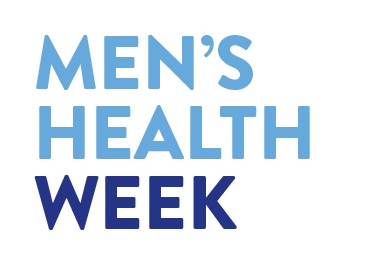Let’s hear a realistic discussion of male mental health

There is a screaming contradiction at the heart of mental health provision in this country and it is this: the vast majority of people who kill themselves in the UK are men; the vast majority of people who receive treatment for mental health challenges are women.
Three-quarters of the 6,122 people who took their own lives in the UK in 2014 were men. In other words, twelve men kill themselves everyday in the UK. One every two hours. It is the single most common cause of death in men under 35 and rates for middle-aged men (45-59 years old) are back around record levels.
Suicide is the end of a long and very rocky road. Surely, it is possible to intervene before it comes to that? Certainly, the NHS tries to do this. Since 2010, NHS England has provided IAPT (Improving Access to Psychological Therapies). Like men themselves, these services are under pressure like never before but nonetheless in March 2016, over 118,989 referrals were received by IAPT. The trouble is that around two-thirds of IAPT referrals are for women.
What can be done? If traditional services are not reaching men, it suggests we need to consider new services. But it also suggests we may need to find new ways of communicating with men so that they feel services are for them.
This process needs to start with a consideration of how men talk about mental wellbeing.
Embarrassment begins early
It is clear that the taboo around mental health begins long, long before the suicide stage. In a survey conducted by Opinion Leader for the Men’s Health Forum for Men’s Health Week 2016, 34% of men said they would be embarrassed or ashamed to take time off work for mental health concern such as anxiety or depression compared to 13% for a physical injury. This feeling was even higher among men who were already facing mental health challenges: 46% were embarrassed or ashamed. Even more men (38%) were concerned that their employer would think badly of them if they took time off work for a mental health concern – compared to 26% for a physical injury. (Again, amongst men with existing mental health concerns, the figure was even higher: 52%.)
IAPT was born out of the view that talking therapies could be more effective and less prone to side-effects than drugs in the treatment of milder mental health conditions such as depression and anxiety. The challenge is that for talking therapies to be effective, talking is required.
The Forum’s survey suggests that embarrassment with this begins early with men. If men are to talk about their mental wellbeing, we need to find the sort of language that enables them to do it comfortably as early as possible. But, while you won’t hear many men discussing ‘mental wellbeing’ or ‘resilience’ or ‘coping strategies’, we’ll all moan about stress so why not use that everyday term? We may all mean different things by it but it is a starting point.
External not internal
One of the strengths of using the concept of stress to talk about mental health with men is that stress suggests external factors. The difficulty comes from outside – tough boss, difficult family situation, financial problems etc – rather than reflecting internal failings in the individual. This is why, in my opinion, language like ‘can’t cope’ or ‘is it all too much?’ often fails to resonate with men. An inability to cope implies an internal, individual failing.
Put men in control
The second is that the language we use needs to put the individual in control. This is a challenge for the NHS. It is instinctively caring and even maternal and, despite occasional rhetoric to the contrary, finds it difficult to put the patient in charge. Men, who like to feel in control, perhaps kick against this more than women.
Now let’s not throw our hands in the air in metrosexual angst at this sexist generalisation. Let’s think about it honestly. Being in control is actually a quality that most of us (male and female) admire. We want, to give just one example that doctors and patients alike can relate to, our surgeons (90% male) to be in control. If it’s a quality that society admires and even requires in its alpha males then it’s not surprising that the rest of us aspire to it too. The trouble is that traditional services often seem to do everything they can to remove the patient from control.
The recent American Psychological Association survey linking so-called ‘macho’ attitudes with poor mental health only underlines this point. Men who valued male self-reliance were more likely to have mental health problems. (As indeed were men who had ‘sexist’ values.) It’s all very easy to say that men need to change (and since these values are clearly making them unhappy, nobody would argue with that) but services need to change too.
Stress is normal
The Men’s Health Forum tried to kick off this discussion during Men’s Health Week 2016. It posed a question which immediately put the individual in control: what do you do to beat stress?
Stress is normal, the Men’s Health Week campaign said. It’s what you do about it that counts. You can’t control what happens to you. You can control how you respond to it.
Moreover, since everyone can answer this question in a way that feels empowering, it is a way of getting a discussion started. Because smaller steps are easier to take, it is then possible to move from what works (or doesn’t) to beat stress to what causes it. You can also talk about stress-busters that work short-term (smoking or drinking, for example) but cause more stress in the long-term. The stress concept – used in this very everyday, colloquial, not-at-all medical sense – becomes not woolly but powerful.
Get alongside men
It’s all about going to where men are. Traditional public health messaging stands on the sidelines of real life yelling ‘do this!’ or ‘don’t do that!’. These messages – whether around smoking, drinking, diet or mental wellbeing – have had limited effectiveness with men. For example, men are three times as likely to report frequent drug use and nearly three times more likely to become alcohol dependent than women.
What we need to do is get out there where men are – genuinely alongside them, not shouting through a megaphone. Finding the right words is one of the most important tools we have for doing that.
That’s why prior to launching its new mental health service for men, the Men’s Health Forum held several focus groups with men to find out when, if and how they talked about mental health. Finding a language that would resonate and encourage men to engage was key to this.
beatstress.uk
It’s no accident then that the service is called beatstress.uk. Building on what is already known about making mental health services work for men including the Forum’s own How To guide on the subject, beatstress.uk is an online service providing live text chat with a specialist during certain opening hours and email access at all other times. The specialists are drawn from a range of health professions and backgrounds.
It is a mental wellbeing service that gets in right at the start of that rocky road. You’ll find no mention of any mental health conditions here – stress is whatever it means to you.
The service is completely anonymous. You ask your question, you get an answer, you talk it through. The specialists do not ‘refer’ in the conventional sense but they can ‘inform’ about what other services can help. (Often this will be the GP, of course.) The man is empowered. He has information, he knows where to find out more and he has been ‘given permission’ to use existing services. He is in control of when and how he does this.
Cost-effective
The service goes where men are. Research shows that more men use the internet than women but fewer of them search for health information. So the service uses ads (most of them free to a charity like the Men’s Health Forum) which appear on the sites where men are (and not just health sites) to alert them to the service. Too expensive? The evidence from Man MOT, a similar service run by the Forum enabling men to chat to GPs, is that turning up or turning down the advertising can enable the virtual surgery to run at full capacity all the time making it a very cost-effective way to deliver a service.
Man MOT also suggests that online services are particularly good at reaching men from more deprived communities and also younger men – two of the hardest to reach sub-sections of that ‘hard to reach group’ known as males. Over a third of users of Man MOT were from the most-deprived 20% of postcodes (with over 70% of users from the poorest half of the country). It is not obligatory to provide your age to use the Man MOT service but since the information is useful to the GP, many do. Analysis suggests the largest single user group was aged 16-24 years (42% of the total).
Let's talk
Men don’t much want to talk about mental health – but by using different language and providing different services we can accommodate that. However, health professionals, especially in public health, do need to talk about it. And we all, health professionals as well as men under stress, then need to examine our own behaviour. Let’s talk.
Jim Pollard is editor of the Men’s Health Forum’s websites and publications. Image with thanks to: Florian Simeth (Licence: CC2BY). An edited version of this article first appeared in the RSPH journal Perspectives In Public Health.
References
- ONS Suicides in the UK 2014
- IAPT reports
- Men's Health Forum key data on mental health
- Statistics on surgeons
- Internet Access Quarterly Update, Q1 2014, ONS
- NHS Choices: Public Omnibus Survey Jan 2014
- Man MOT Key Lessons: How online anonymity works for men - Peter Baker (Men’s Health Forum, 2016)
|
The Men’s Health Forum need your support It’s tough for men to ask for help but if you don’t ask when you need it, things generally only get worse. So we’re asking. In the UK, one man in five dies before the age of 65. If we had health policies and services that better reflected the needs of the whole population, it might not be like that. But it is. Policies and services and indeed men have been like this for a long time and they don’t change overnight just because we want them to. It’s true that the UK’s men don’t have it bad compared to some other groups. We’re not asking you to ‘feel sorry’ for men or put them first. We’re talking here about something more complicated, something that falls outside the traditional charity fund-raising model of ‘doing something for those less fortunate than ourselves’. That model raises money but it seldom changes much. We’re talking about changing the way we look at the world. There is nothing inevitable about premature male death. Services accessible to all, a population better informed. These would benefit everyone - rich and poor, young and old, male and female - and that’s what we’re campaigning for. We’re not asking you to look at images of pity, we’re just asking you to look around at the society you live in, at the men you know and at the families with sons, fathers and grandads missing. Here’s our fund-raising page - please chip in if you can. |


